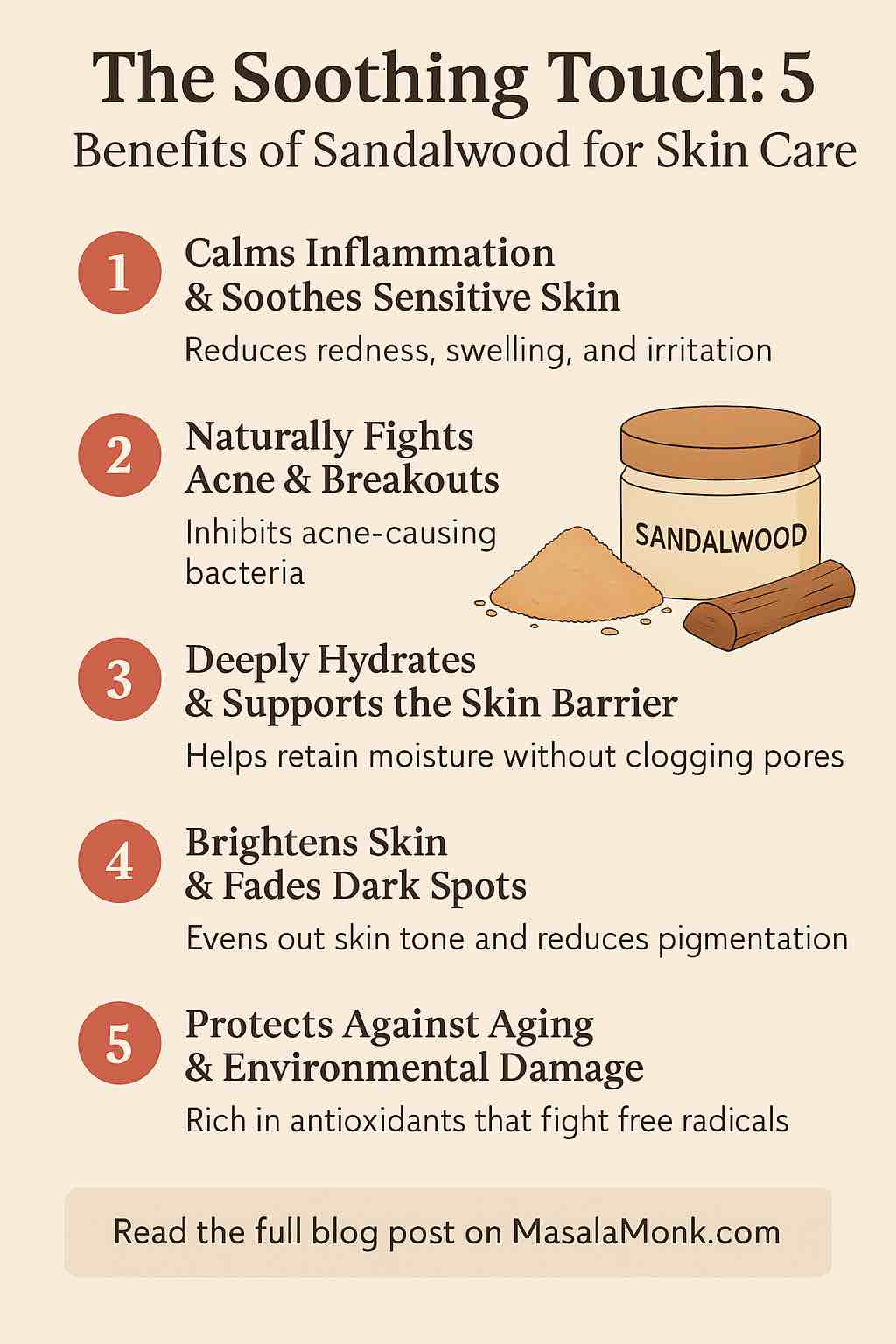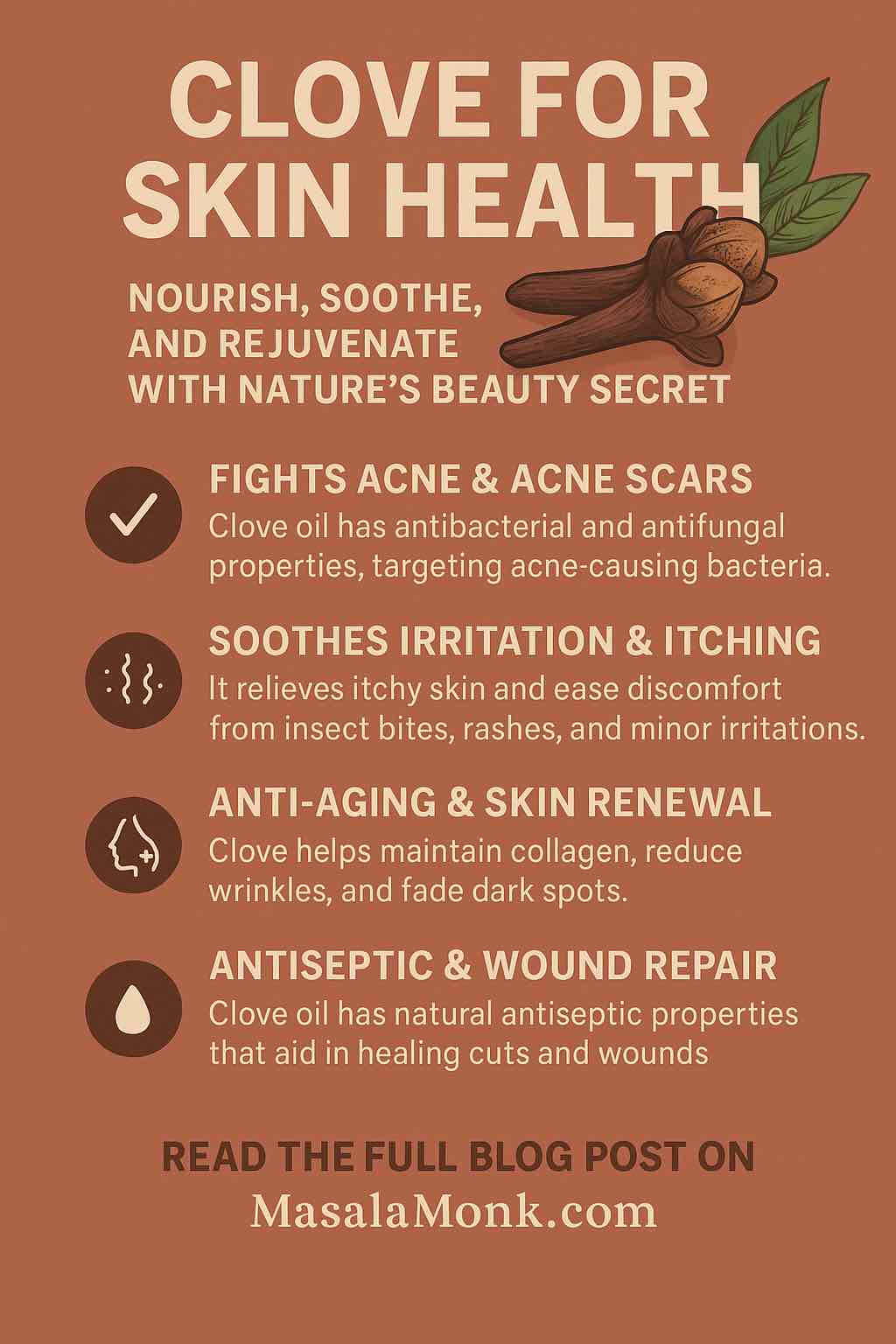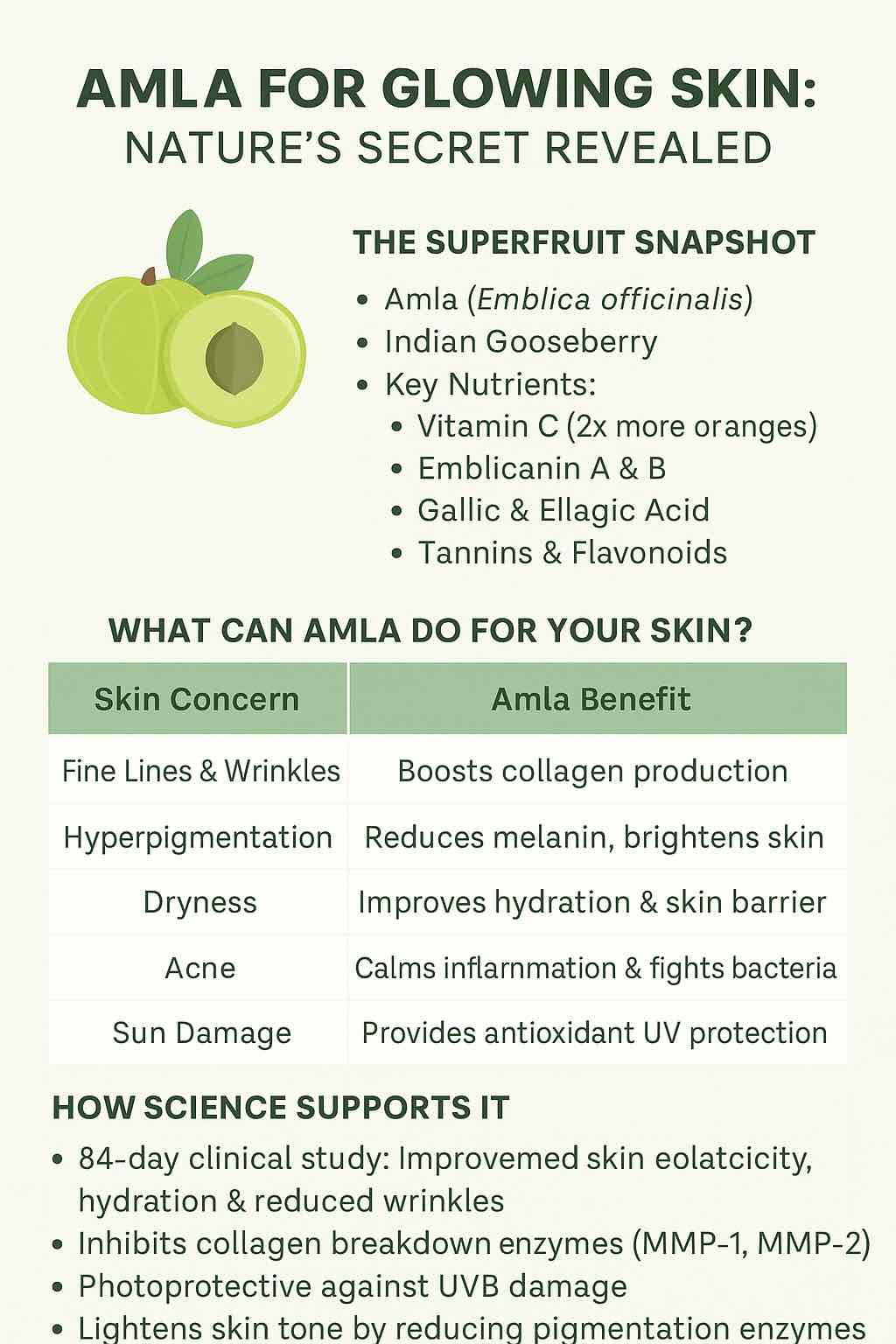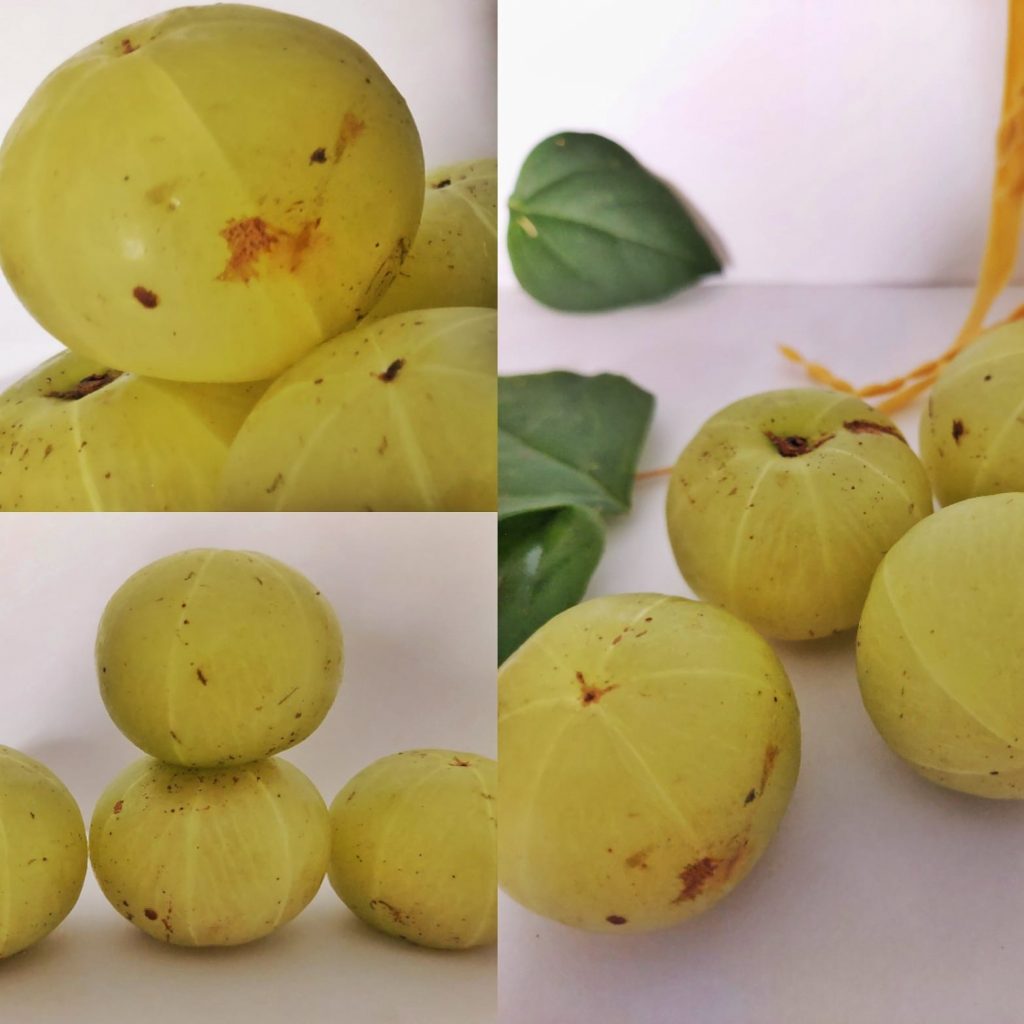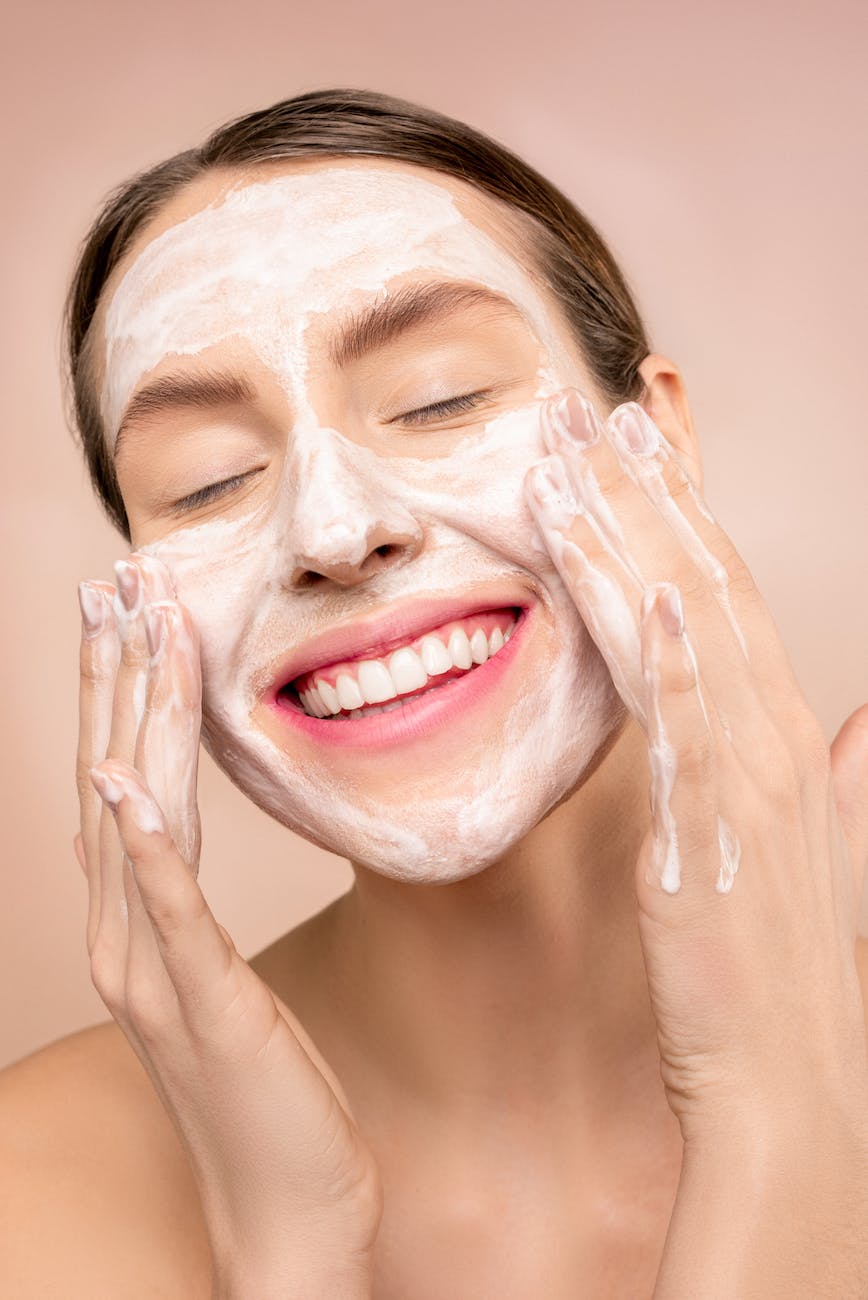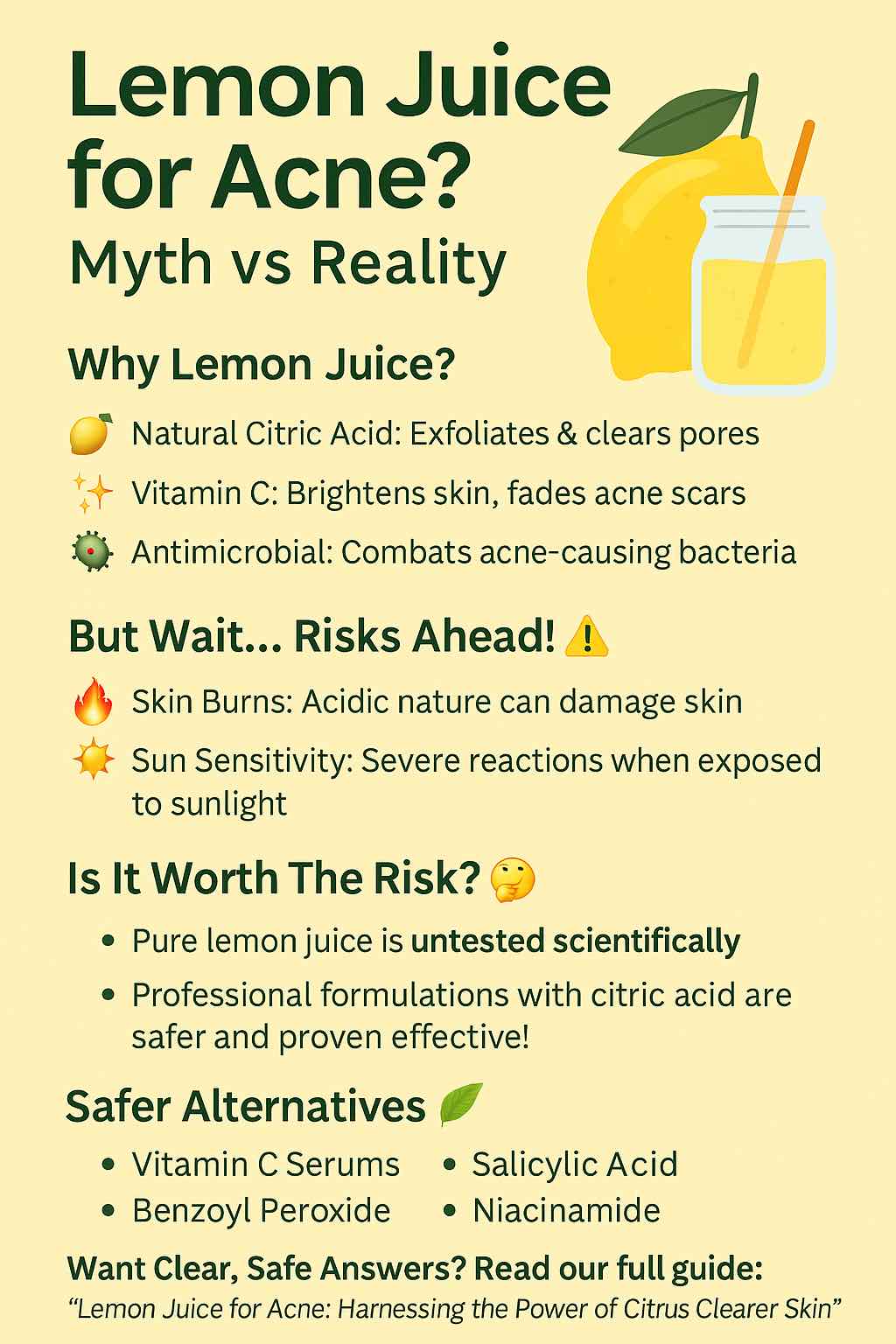
Acne, a stubborn and often frustrating skin issue, has driven people toward countless DIY remedies in the quest for clearer skin. Among these, lemon juice stands out as a popular home remedy—but is it truly effective, or is it just another skincare myth?
Let’s explore the science, the reality, and practical tips if you’re curious about using lemon juice for your skin.
Understanding the Appeal of Lemon Juice
Lemon juice is appealing for several reasons:
- Citric Acid: A natural exfoliant (alpha-hydroxy acid or AHA), it can remove dead skin cells and unclog pores.
- Vitamin C: Known for brightening the skin and fading dark spots, it holds potential for acne marks.
- Antimicrobial Properties: Lemon juice’s acidity can combat bacteria that might worsen acne.
What Does the Latest Research Say?
While lemon juice itself hasn’t been the subject of extensive human trials, ingredients like citric acid have been studied in professional skincare formulations. Recent research suggests:
- Triple-Acid Peels: Combining citric acid with salicylic and mandelic acids significantly reduces acne and hyperpigmentation safely when applied professionally.
- Formulated Serums: Serums blending citric acid with other acids have shown a reduction in oil production and acne marks.
Pure lemon juice, however, remains untested in formal studies, and its effectiveness on acne-prone skin is largely anecdotal and theoretical.
Risks and Precautions
Despite potential benefits, lemon juice can be harmful if misused:
- Skin Irritation and Burns: Lemon juice is highly acidic (pH ~2–3) and can lead to redness, irritation, or even chemical burns.
- Sun Sensitivity (Phototoxicity): Exposure to sunlight after applying lemon juice can cause severe burns or discoloration (phytophotodermatitis).
Practical Tips for Trying Lemon Juice Safely
If you’re determined to give lemon juice a try, follow these guidelines:
- Dilute the Lemon Juice: Mix 1 part lemon juice with at least 3–4 parts water, honey, or aloe vera.
- Patch Test First: Apply diluted juice to a small area (like your inner arm) and observe for reactions over 24 hours.
- Nighttime Only: Use lemon juice exclusively at night, thoroughly rinsing your face afterward to prevent phototoxic reactions.
- Short Contact Time: Limit application to 5–10 minutes, followed by gentle cleansing and moisturizing.
- Sunscreen is a Must: Always apply sunscreen the next day to protect sensitive skin from sun damage.
Safer Alternatives for Acne Treatment
If you’re hesitant about lemon juice but still seeking clear skin, consider dermatologist-approved treatments:
- Vitamin C Serums: Offer controlled doses of vitamin C without irritation.
- Salicylic Acid Products: Penetrate and exfoliate pores effectively and gently.
- Benzoyl Peroxide: Proven antibacterial treatment targeting acne-causing bacteria directly.
- Niacinamide: Helps manage inflammation and reduces redness.
The Bottom Line
While lemon juice holds theoretical promise for treating acne, the real-world risks often outweigh potential benefits. Professional skincare formulations containing citric acid offer safer, proven alternatives. If you choose to experiment with lemon juice, do so cautiously, following the practical guidelines above.
Ultimately, clearer skin comes from consistent, safe skincare practices, professional advice, and proven ingredients. Citrus may have its appeal, but when it comes to your skin, safety and evidence-based choices should always lead the way.
🍋 FAQs: Lemon Juice for Acne
1. Can lemon juice really help clear acne?
Pure lemon juice has anecdotal support, but lacks scientific proof. Its acidic nature might exfoliate, but risks irritation or burns.
2. Is lemon juice safe for all skin types?
Not really. Sensitive, dry, or damaged skin can react badly, causing redness, irritation, or chemical burns.
3. How do I safely apply lemon juice on my skin?
Dilute it (1:3 with water or aloe), apply at night, patch test first, and limit use to 5–10 minutes.
4. Why does lemon juice sometimes cause skin discoloration?
Lemon juice contains compounds that cause phototoxic reactions when exposed to sunlight, leading to discoloration.
5. Can lemon juice lighten acne scars?
Potentially, due to Vitamin C content—but safer, formulated serums are more effective and less risky.
6. What are safer alternatives to lemon juice for acne?
Vitamin C serums, salicylic acid, benzoyl peroxide, niacinamide, and professionally formulated chemical peels.
7. Can lemon juice make acne worse?
Yes, if it irritates your skin, damages the skin barrier, or triggers an allergic or phototoxic reaction.
8. How often can I safely use lemon juice on my face?
Very sparingly—no more than once or twice a week, always diluted, and never before sun exposure.
9. What immediate steps should I take if my skin reacts badly to lemon juice?
Rinse thoroughly with water, apply soothing moisturizers or aloe vera gel, and avoid sun exposure. Consult a dermatologist if irritation persists.
10. What’s the best takeaway regarding lemon juice and acne?
It’s a risky DIY remedy with theoretical benefits but real safety concerns. Dermatologist-approved treatments are always safer and more reliable.

